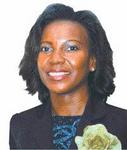
Eulalee Thompson - Eulalee Thompson PHYSICAL STAGES
1. Infancy and childhood (birth to 11 years) - The focus here is on growth and development such as learning to walk, talk, putting on body mass and inches. Dr. Paul, who is also a senior lecturer at the University of the West Indies' Department of Community Health and Psychiatry, said that as a physician, in this stage, his primary role is to assist parents to manage their children's healthy growth and development.
TALK ABOUT the human life cycle is essentially about ageing. Ageing is the constant reminder that death is inevitable. The existential writers, at the turn of the previous century, knew what they were talking about when they said that the awareness of death's inevitability makes us anxious and our work and pastimes are efforts to suppress this anxiety as we wait for death.
It sounds dreary, but nowadays we recognise that we can control our quality of life even as we age and so there is a distinction between chronological and real ages. Use the calculator at www.RealAge.com, make the adjustments for lifestyle, medical history, stress management, social support and so on and maybe your real age will be much less than your chronological age. Try it and tell me about your real age.
But whatever our real age, it is still important to understand, accept and love our body as it goes through stages and ageing.
As a family physician, Dr. Tomlin Paul sees patients as they transition the stages of life - from birth to death. This week, he takes us through not only the physical transitions, but the psychosocial struggles as we age.
Psychosocial STAGES
2. Teens (12 to 19 years) - The outstanding developmental issue among teens (adolescents) is sexual maturation. Dr. Paul points out that boys' testicles in infancy and childhood are smalluntil adolescence when there is growth and by age 11 or 12, the boy has his first ejaculation and erection. Similarly, in girls, the ovaries are dormant until about age 12 or 13, when they start ovulating. Teenagers are sensitive about their bodies and self-identity, Dr. Paul pointed out for instance, that boys' limbs grow faster than their trunk and they may appear awkward and come in for some teasing from peers. Peers may also be unkind if there is a lag in the development of secondary sexual characteristics (for example, hair under the arms, breast development), he said.
1. Infancy and childhood (birth to 11 years) - The psychosocial issues in this stage are learning to develop trust, confidence, skill and mastery through play and autonomy.
2. Teens (12 to 19 years) - In tandem with a host of dramatic, confusing physical changes, adolescents grapple with psychological issues relating to identity vs identity confusion. Their essential question is, "Who am I?" Dr. Paul believes that more support structure should be placed here to assist teens to answer this question and move smoothly into the next psychosocial phase of life.
3. Young adults (20s to 30s) - Dr. Paul said that this is basically a healthy group focusing on developing their career and intimacy. "What I see in this group, as a physician, is relationship formation. People are partnering and unpartnering and with that comes the whole thing of sexual issues, pregnancy, contraception, when to have a child (as more women focus on career development)," he said.
3. Young adulthood (20s to 30s) - This group's focus is on career building and developing intimate, stable relationships. The psychosocial struggle is intimacy vs. isolation, taking in issues of living single, partnering, unpartnering and infidelity.
4. Older adults (mid-30s to late 50s) - The irony, Dr. Paul said, is that as healthy, young adults focus on career development and relationship, they often take their health for granted; they may enter this period with some chronic lifestyle conditions.
"They may say, 'how did I get that?' So, this is when there is a wake up call and we know that it didn't just happen," Dr. Paul.
In this stage, women in their 40s and 50s experience the sharp decline in ovarian function and enter menopause. Men also experience a decline in male hormone, but Dr. Paul said the decline is slow and gradual.
"What I have noticed from my practice is that a person's willpower doesn't age in the same manner as physical capability. I see it particularly in older men," he said.
4. Older adults (mid-30s to late 50s) - This stage is a struggle between issues of generativity vs. stagnation. This group's psychosocial issues surround an assessment of accomplishments and panicking if the belief is that they have fallen short of expectation.
5. Old age/senior citizens (60s and over) - As a spillover from older adulthood, from a physician's view point, this is the stage of further physical decline, when the diseases of the earlier stages start settling in.
"People would have adjusted to their condition and are not in denial about their disease, and so it is important to manage disease," Dr. Paul pointed out.
5. Old age/senior citizens (60s and over) - The critical psychosocial issue in this group is retirement. It can be a time of despair if adequate preparation has not been made. They must also face, squarely, the issue of death.
If you have been living well with any chronic condition, we want to hear your stories of triumph. Write to: Health c/o The Gleaner Company, 7 North Street, Kingston; email: eulalee.thompson@gleanerjm.com; Telephone: 922-3400.
Alongside physical stages, human being also experience psychosocial changes. The Erikson's model of change is briefly addressed here.

